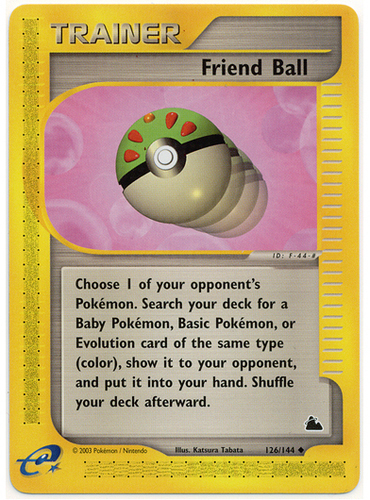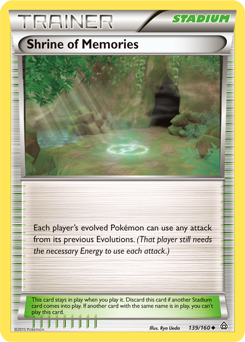Introduction
Today’s topic is a two-for-one: foul play, and trust. Although I normally save the more socially-themed articles for Saturdays, I considered it valuable to address them today because honest play is integral to competitive Pokémon! While it may not be apparent now, by the end of this article it should be clear that honest play is a vital trait in its own right
A Few Words on Cheaty McGee
I’ve heard (and seen) evidence against a certain…thing. This…thing committed what’s possibly some of the most blatant cheating I’ve ever seen in my life. This thing is also insane clickbait on various YouTube channels, including but not limited to that one guy who has an unhealthy obsessions with animals.
I shall not speak the names of the cheater, of the clickbait channel owners. However, I’d like to lead this entry off with some words on a purely hypothetical person: Cheaty McGee.

McGee’s the name and Cheating’s his game!
Cheaty is a simple man. He cheats on exams, cheats on his girlfriend, and of course cheats at Pokémon. In fact, he cheats so much, you can literally see it on his face! Who ever thought a man could blush so much his cheeks would turn into Colorless Energy?
Now, spotting Cheaty is awful easy in hindsight, but it’s tough to spot him in the moment! Insist on ALL of the following from your opponents, and it’ll be less likely you’ll get screwed over by guys like Cheaty McGee:
–North/South deck alignment. That means the open ends of the sleeves, or the tops of the cards, should be facing AWAY from the opponent!
–Sleeve conditions. While it’s an unreasonable expectation to demand that all sleeves be mint condition all the time, there are people who actually play with broken sleeves without replacing them! So when one sleeve is obviously busted, or different from the others, get it replaced ASAP.
–Do NOT permit your opponent to fan-draw! That means don’t let them draw in clumps; insist that they draw one at a time.
–4/17 update: FOCUS on what the opponent is doing. Even momentary distraction can result in incredibly shady actions.
–Hands (card hands) should be far away from your deck at all times. So when your opponent is searching their deck for a Pokémon, the hand should NEVER approach the proximity of the deck for any reason – even a second.
–Hands should be above the table at all times. I don’t care if you’re Mother Theresa; there’s no good reason to ever hold your hand in a way that obscures it from your opponent.

Sometimes, you can't even trust a nun.
Establishing Trust
So you’ve got an idea of who Cheaty McGee is and some of the more basic ways to stop him. Now here’s the flip side: What can YOU do to earn the trust of your opponents? With all this extremely negative talk going on due to Cheaty McGee's real-life counterpart, it's all too important to emphasize that our game is full of incredible people with lots of integrity. Thus, the rest of this entry will be about building a surprisingly valuable interpersonal relationship in competitive Pokemon.
But first, let's answer a simple question…

Why is Building Trust Important?
1. The unspoken, obvious things: Spirit of the game, friendship, pride in your game, etc…there are numerous things related to your own personal ethics that incentivize honesty. I assume these are the only reasons you will need, because I assume only the best out of my readers and think that the tangible benefits should be irrelevant. However, do keep in mind that there are tangible benefits, as well, which will fill out the rest of this list.
2. You will likely play in your local tournament scene numerous times, so trying to make your “best behavior” the norm rather than the exception will make the majority of your tournaments enjoyable experiences for you and those around you. This matters because if you’re constantly stressed, isolated, and alone, that rarely does good things for your play. So even if you AREN’T a cheater, but act in ways that are mostly inconsiderate of your opponent, then it will come back to bite you.
3. Trust facilitates smoother resolutions to mix-ups and game state errors. When you can be reasonably sure that the person you’re sitting across from is doing nothing malicious, then resolving the mistakes they may make is a more methodical, less stressful process. And when you’re playing for a long amount of time, less stress is good for your mind!
4. Trustworthy players on average have a wider playtesting network, borrowing opportunities, and people to road trip with or room with at tournaments. In other words, doofuses like Cheaty McGee don’t have many friends, so be trustworthy and you’ll have one less barrier to making friends!
(We can also get into what makes a player a bad roommate during a Nationals or Worlds trip, but that sounds like another topic for another day…)

How Do You Build Trust with Your Opponents?
1. Be willing to offer your opponent options they might not have considered. For example, when a player normally flips to choose who goes first, they give their opponent the option to call heads or tails. I mix up that formula a bit by also offering my opponent a third option: to call it in the middle of the air. Several of my friends in the Dallas and Houston areas joke about this all the time, and it’s kind of awkward, but it’s good to offer because some players fear a coin can be manipulated. By offering to remove that element of the coin flip entirely, even those players know I have zero interest in anything less than an honest result on the coin flip.
Same thing goes for cutting or tapping – why not offer them the chance to shuffle? For newer players who might not know this is even an option, that actually makes a big difference.
2. Announce actions. This might be extreme, but I actually announce almost everything I do: attachments, Attacks, Retreats, etc. Pretty much everything short of counting the first seven cards I draw – of which it also might be a good idea to do. At any rate, announcing too many things is better than announcing too little, which leads to the chance something might not be communicated well.
3. Don’t rush through actions. Part of the reason why players are so suspicious of the dreaded “fan draw” is because it is by nature a rush through what should otherwise be a very clear process: the drawing of multiple cards.
4. Never be afraid to call yourself out on your own mistakes. It’s inevitable that even the best players will make the occasional horrible game state error: a double-attachment, illegally playing Items under Item lock, an extra card drawn, and all sorts of other crazy things. Whatever it may be, at least bring it to your opponent’s attention the moment you catch it, and don’t be afraid to call the judge on yourself, either.

Conclusion
Now you know not only ways to deal with Cheaty McGee’s more common antics; you also have an idea of ways to build trust and rapport with your fellow players, as well. With dedication, hard-earned trust, and a vigilant community, we can flush the cheaters out of our game, and leave them behind in our memories.
